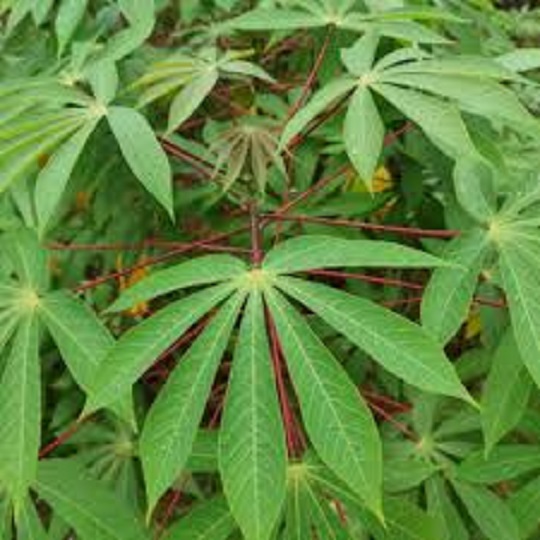
10 Health Benefits of Cassava Leaves
10 Health Benefits of Cassava Leaves. Cassava leaves, derived from the cassava plant (Manihot esculenta), are an often overlooked but highly nutritious part of this staple food. These leaves are rich in vitamins, minerals, and other bioactive compounds, offering a range of health benefits. Here are ten evidence-based health benefits of cassava leaves:
10 Health Benefits of Cassava Leaves
1. High Nutritional Content
Cassava leaves are packed with essential nutrients, including vitamins A, B, and C, calcium, iron, and protein. They contain significant amounts of essential amino acids, making them a good protein source, especially in protein-deficient regions (The Healthy).
2. Antioxidant Properties
The leaves are rich in phenolic compounds, flavonoids, and vitamin C, all of which are potent antioxidants. These compounds help neutralize free radicals, reducing oxidative stress and lowering the risk of chronic diseases such as cancer and heart disease (SingleCare).
3. Antimicrobial Activity
Cassava leaves have demonstrated antimicrobial properties, making them effective against various bacteria and fungi. Studies have shown that extracts from cassava leaves can inhibit the growth of harmful microorganisms, potentially preventing infections and promoting overall health (EverydayHealth.com).
4. Anti-inflammatory Effects
Research indicates that cassava leaves possess anti-inflammatory properties, which can help in managing conditions characterized by inflammation, such as arthritis and other inflammatory diseases. This is largely due to the presence of compounds like saponins and flavonoids (The Healthy) (SingleCare).
5. Supports Immune System
The high vitamin C content in cassava leaves plays a crucial role in boosting the immune system. Vitamin C enhances the production of white blood cells, which are essential for fighting off infections (SingleCare).
6. Antidiabetic Potential
Cassava leaves have been traditionally used to manage diabetes. Recent studies suggest that they can help regulate blood sugar levels due to their high fiber content and the presence of bioactive compounds that enhance insulin sensitivity (EverydayHealth.com).
7. Digestive Health
The fiber in cassava leaves promotes healthy digestion by aiding in the movement of food through the digestive tract, preventing constipation, and supporting overall gastrointestinal health (SingleCare).
8. Bone Health
Cassava leaves are rich in calcium and phosphorus, which are vital for maintaining strong bones and teeth. Regular consumption can help in preventing bone-related disorders such as osteoporosis (The Healthy).
9. Weight Management
The high fiber content in cassava leaves contributes to a feeling of fullness, which can aid in weight management by reducing overall calorie intake. Additionally, their nutrient density ensures that you receive essential vitamins and minerals without excessive calories (SingleCare).
10. Potential Cancer-Fighting Properties
Emerging research indicates that the phytochemicals in cassava leaves, such as alkaloids and flavonoids, have anticancer properties. These compounds can induce apoptosis (programmed cell death) in cancer cells and inhibit their proliferation (EverydayHealth.com).
10 Health Benefits of Cassava Leaves
Conclusion
Cassava leaves offer a wide range of health benefits backed by scientific evidence. From their rich nutritional profile to their antioxidant, antimicrobial, and anti-inflammatory properties, these leaves can be a valuable addition to the diet. As with any medicinal food, it’s essential to consume cassava leaves properly prepared to avoid any potential toxicity from naturally occurring cyanogenic glycosides, which can be harmful if not adequately processed.
References
- The Healthy
- SingleCare
- Everyday Health
- Food and Agriculture Organization of the United Nations (FAO): http://www.fao.org/ag/agp/agpc/doc/gb/cassava/cassava.htm
- National Institutes of Health (NIH): https://ods.od.nih.gov/factsheets/Cassava-HealthProfessional/
- World Health Organization (WHO): https://www.who.int/news-room/fact-sheets/detail/cassava
- Linus Pauling Institute, Oregon State University: https://lpi.oregonstate.edu/mic/dietary-factors/phytochemicals/cassava
- International Institute of Tropical Agriculture (IITA): https://www.iita.org/cassava/
- University of California, Davis: https://www.ucdavis.edu/food/content/cassava-nutritional-value-and-health-benefits
- Journal of Agricultural and Food Chemistry: https://pubs.acs.org/doi/10.1021/jf050185i
- Critical Reviews in Food Science and Nutrition: https://www.tandfonline.com/doi/full/10.1080/10408398.2010.544216
- Food and Nutrition Bulletin: https://journals.sagepub.com/doi/full/10.1177/1564826519889004
- Comprehensive Reviews in Food Science and Food Safety: https://onlinelibrary.wiley.com/doi/abs/10.1111/1541-4337.12091




